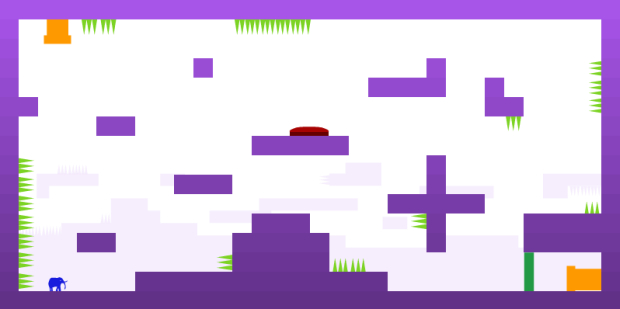I don’t want to even think about the sheer number of hours I’ve spent playing flash games. Still, at least twenty percent of that time has been spent at Armor Games. From This is the Only Level to Infectonator World Dominator, Armor Games has eaten up literal weeks of my life.
When given the opportunity to interview Armor Games founder Daniel McNeely, I wasn’t sure whether to thank him or grab him by the scruff of the neck and demand so many hours of my life back.
As it turns out, I ended up asking him a few questions about flash games. You can read the full interview after the jump.
Destructoid: Could you introduce yourself, and what you do?
Daniel McNeely: My name is Daniel McNeely, and I help run ArmorGames.com along with a host of talented game developers and web programmers. I’m responsible for the site’s day-to-day operations, as well as making sure it’s constantly updated with the best flash content out there.
With so many flash games being released every day and so many different portals for them, how difficult is it to excite people about individual flash games?
It actually isn’t as tough as it sounds. There are people all over the world looking to play free games online, and so no matter what genre of game we release, it seems to hit a certain demographic. The real excitement often comes in releasing sequels, especially after you already have a huge following for the original title, such as we had with This Is The Only Level and This Is The Only Level Too. We’ve already seeing this in effect for our latest game, ‘Crush the Castle 2,’ which is currently under production from Joey Betz and ConArtist. There’s already a significant buzz for the game, and people are really excited over it, kind of like you’d see in a full retail release.
What sort of creative control, if any, does Armor have over the games it sponsors?
We don’t get much creative control over games we simply sponsor. In those cases, a developer approaches us with a game that’s already been completed, tested and is ready for launch. At times we’ll ask for some UI changes, but we’ve never done a full overhaul. We like to let them retain their individuality and identity while still being part of Armor Games.
If the event we partner with a developer to make a game together, we get more involved in the creative process and try to offer specific feedback and testing at various stages of the development process. That way it’s very much a joint project that both sides feel happy with.
How has flash game distribution changed, if at all, from the growing downloadable content market? If you’ve gotta choose between surfing Newgrounds for free and leaving the house to buy a $50 game, that’s often an easy decision to make. With online-only alternatives like Steam and the App store offering relatively cheap games, has the market for free flash games changed at all?
I don’t think the market for free flash games has changed much. If I had the choice to spend $50 or surf Armor Games for free, I’d choose Armor Games more often than not. I do think flash game developers are looking for more ways to make money, which is evident by the numerous companies offering microtransactions in their titles.
As a company that’s probably seen and played every flash game out there, what are some common mistakes flash devs tend to make? What makes for a great browser game?
One common mistake I see is in the UI design. Developers often forget to add the small things that make a game feel professional and polished and focus more on the game themselves. These things are relatively easy to add in, but forgotten easily. They be as simple as including a Mute or Pause Button, or as important as a skip button during dialog, or even a ‘Retry’ button for games that are level-based. Without them, the experience can become really un-fun, and players don’t have as much emotional investment in a game they’re playing for free, in a browser, versus one that they’ve paid $50 or $60 for.
For me, a great browser game has the following.
1.) Great music.
2.) Intuitive and easy controls.
3.) Rewards (visual or auditory). The best example I’ve seen of this is in Peggle – every time you beat a level.
Thanks for your time.


